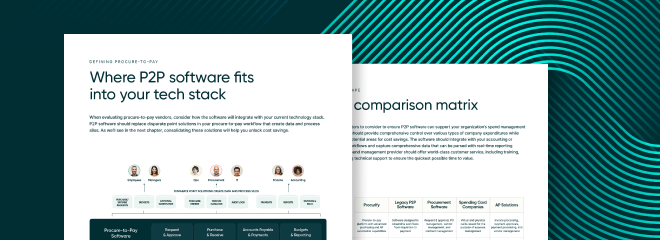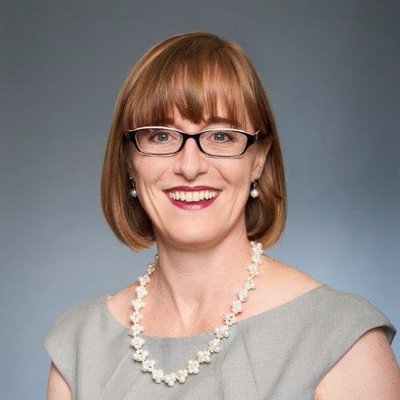Pushing Sustainability in Finance: Pamela Steer of Payments Canada
Managing the financial performance of a fast-moving startup or large corporation often means keeping investors happy. But doing the same job at a government organization comes with even more scrutiny. On this episode of Spend Culture Stories, Pamela Steer explains why Canada is in a prime position to contribute to sustainability in finance at a global level, and how everyone in a workplace can help improve gender inequality.
Episode description
Pamela Steer is the Chief Financial and Corporate Strategy Officer at Payments Canada, the government entity that runs Canada’s national payment system. With a background working in startups, Pamela is a member of multiple boards, including the Accountability for Sustainability Project.
Pamela’s resume is, as she puts it, broad rather than deep. Even though that worked against her earlier in her career, she’s now pleased to have had a diversity of professional experience.
“All entities have significant challenges and opportunities they have to deal with and optimize. If you’re at a publicly-traded company, it’s about growth, innovation, bottom line, and sales. In a regulated environment, on the other hand, government overlay policy is exceptionally important,” she says.
Despite popular belief, government organizations are capable of innovating — they just have to jump through a few more regulatory hoops.
“Innovation takes different forms at times,” Pamela says. “However, Payments Canada is undergoing a huge modernization of all of its payment systems. It’s a massive challenge, with big innovation involved.”
Looking ahead, Pamela is excited to help Canadians move payments faster, and for the country to become a power player in putting its money where its mouth is on sustainability.
Pamela Steer of Payments Canada
💵 What she does: Chief Financial and Corporate Strategy Officer at Payments Canada
💡 Key quote: “The oversight that we undergo as a government organization is similar to a number of regulated industries with publicly-traded or private sector companies. But it is different at the same time, and I find it fascinating.”
👋 Where to find her: Twitter | LinkedIn
Listen to the episode
Top takeaways from this week’s conversation
Payments Canada is working on real-time payments 🍁
Payments Canada is working to roll out real-time payments between individuals and businesses.
“This will offer businesses the opportunity to make more electronic payments directly to their suppliers and their customers, as well as have the data travel with the payment. That will be such an important evolution in Canadians’ ability to transact business and to track what’s happening,” Pamela says.
The current estimated release date is late 2022. This isn’t just a spit-and-polish job, hence the lengthy time frame. “These projects can take a long time to implement. You have to take new technology and reimagine what processes will look like. This will be a revolutionary opportunity for businesses,” Pamela says.
Combat gender inequality by actively working to promote women at work 🧑🤝🧑
If your sole contribution to addressing gender discrimination in the workplace was posting a pithy quote on Instagram on International Women’s Day, you get an F for effort. The only way to address this issue, according to Pamela, is to take active steps to correct it. And the burden shouldn’t only fall on women.
“It’s helping people be the best they can be in their chosen field — it’s not just talking about it, it’s about what you actively do,” Pamela says. Introduce people in your network to each other, “so that it becomes a virtuous circle.” Help colleagues reach the next steps of their careers, especially if you’re in a senior position that can influence hiring.
“It’s about taking an active position rather than just a supportive or a passive position,” Pamela says.
Financial institutions must take responsibility for sustainability ♻️
As a board member for the Accountability for Sustainability Project, Pamela is working to make sure Canada puts its investment power to good use on the planet’s behalf.
“We can be more thoughtful about how we spend money and what the environmental implication of that spend is,” explains Pamela. “We need to think very carefully about how Canada moves forward in an innovative way to solve climate issues and environmental issues.”
A recent report by the Institute of Sustainable Finance — the first of its kind in Canada — found that the top culprits are, unsurprisingly, energy and transportation. Another issue is energy inefficiency in buildings.
“How can the government support people in investing in their homes to make them more energy efficient, as well as our commercial buildings and municipal buildings and so forth?” Pamela says. “While the number is big, it’s actually not unattainable, between the government and private sector working together to get there over the next 10 years or so.”
Spend culture highlights
💡 You don’t have to love accounting to go into finance
[2:22] “I’m not a big accounting fan. I love business, I love businesses, I love transformation and people. So my journey has spanned from finance roles to operations roles and back again, because I really do see the intersection and the importance of knowledge of finance and financial matters, and applying that to the business.”
💡 Broad experience eventually pays off
[4:03] “Bringing transferable skills and moving them across industries and sectors of the economy has been gratifying and enjoyable. Certainly they offered some challenges early in my career. Often with financial professionals, you’re pigeonholed. Anybody recruiting is looking for a certain type and a certain level of experience, and it’s often narrow and deep. So having more breadth can be a challenge. However, I’ve found that now I’ve achieved an executive level, it’s really benefited me to be able to apply the breadth of my experience and knowledge of a number of areas of the economy to different businesses.”
💡 How COVID-19 affected non-profit departments of government
[7:07] “Payments Canada is a not-for-profit: We were created by an Act of Parliament and our member institutions are generally required to be members of Payments Canada. We collect fees based on their membership, as well as transactions that flow through our system. The idea is to have a zero bottom line. Most years that’s pretty understandable, but this year, obviously, was a very different environment. So the spend culture now is looking at what makes sense.”
💡 COVID-19 has become a chronic issue with long-term effects
[10:09] “At the outset of the pandemic, it was really like an acute patient. You’ve been injured, how do you deal with the short-term crisis of communications? How do you work with your teams and establish healthy remote work habits? And then as we’ve gone along, it’s become more like a chronic disease. How do you deal with that and the mental toll that takes as we still have objectives to achieve and move our programs forward?”
💡 Another incentive for companies to stop doing paper accounting
[17:28] “What’s important is preparing for the future of payments and looking at your processes. How will they change in a new environment with new potential opportunities for different ways to pay?
In the pandemic, businesses digitized their operations and moved to electronic accounts payable, for example. This obviously closely ties to payments or their supply chain. Doing as much of that as possible to prepare for the great technology that’s on its way will be really beneficial going forward.”
💡 From issuing orders to changing diapers
[35:15] “We have global investment portfolios in Canada. These include our large and well-run pension plans, our public sector pension plans, and our banks. Taking a very active stand on working with the management of those companies in which those pension plans and banks and so forth invest is really important to moving forward in a global way. Pension plans have been very active in this space and doing a lot of work on sustainability, how to have carbon budgets in their investments, as an example. How to value not just shorter term payback, but factors related to sustainability.”
Top quotes
[3:19] “I have had a fairly non-traditional finance career. I’ve enjoyed the different opportunities I’ve had, from raising funds and being a super startup with just a few people and an idea, to taking a larger organization public on the stock exchange and adding all the compliance elements that [it] requires.”
[12:07] “I miss being with my colleagues. It’s more difficult to have a casual conversation. We do use Google Suite so we have chats and hangouts and that’s helpful, but it’s not the same.”
[24:15] “Don’t make the same mistake twice, because there will be plenty more new ones to make and to learn from.”
[31:48] “Entrepreneurship and innovation is as much art as it is science. It’s somebody that has the vision to apply their knowledge in a new and novel way that hasn’t been thought of before, what’s more artful than that?”
Subscribe and help us grow
Did you enjoy the podcast? Subscribe to Spend Culture Stories on Spotify, Apple Podcasts, or wherever you listen to podcasts.
If you have an extra 10 seconds, please leave us a rating or review to help us grow. Have recommendations for future podcasts? Contact us at [email protected].

